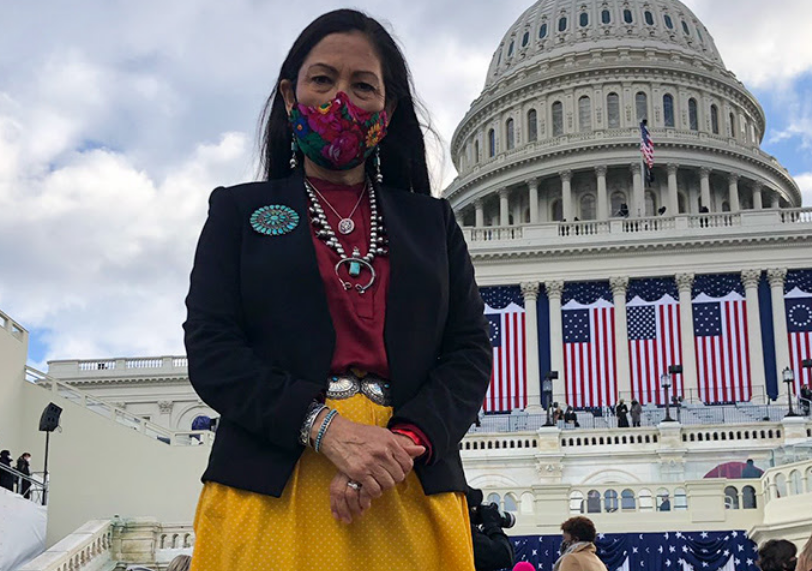
- Details
- By Native News Online Staff
WASHINGTON — The U.S. Department of the Interior announced on Thursday Interior Secretary Deb Haaland will serve as the chair of the newly reconstituted Council on Native American Affairs.
The Council was first created under President Obama, which was dormant during the Trump administration, will meet on April 23. Officials said the interagency Council, which includes leaders from across the federal government, has not met regularly since 2016. It began in 2013 in response to a request from tribal leaders.
Next week's meeting will be convened by Haaland and Susan Rice, the White House domestic policy adviser.
"The White House Council on Native American Affairs represents an important commitment to strengthen tribal sovereignty, uphold our commitment to tribal nations, and honor the United States' nation-to-nation relationships," Haaland said in a statement.
"Addressing the systemic inequities that impact Indigenous peoples is the responsibility of every federal agency that will require an all-of-government approach across the administration," she added.
Rice said the council "will maximize federal efforts to support tribal nations as they tackle pressing issues, such as COVID-19 response, reopening schools and rebuilding tribal economic development."
Interior said the meeting will take place virtually and will be closed to the press.
More Stories Like This
Native News Weekly (August 25, 2024): D.C. BriefsUS Presidents in Their Own Words Concerning American Indians
I’m a Minneapolis Postal Worker. This Is What I Saw.
Next on Native Bidaské: Inside Dark Winds with the Cast of Season 4
'Sovereignty Predates the United States,' NCAI President Mark Macarro Tells Tribal Nations
Help us defend tribal sovereignty.
At Native News Online, our mission is rooted in telling the stories that strengthen sovereignty and uplift Indigenous voices — not just at year’s end, but every single day.
Because of your generosity last year, we were able to keep our reporters on the ground in tribal communities, at national gatherings and in the halls of Congress — covering the issues that matter most to Indian Country: sovereignty, culture, education, health and economic opportunity.
That support sustained us through a tough year in 2025. Now, as we look to the year ahead, we need your help right now to ensure warrior journalism remains strong — reporting that defends tribal sovereignty, amplifies Native truth, and holds power accountable.
 The stakes couldn't be higher. Your support keeps Native voices heard, Native stories told and Native sovereignty defended.
The stakes couldn't be higher. Your support keeps Native voices heard, Native stories told and Native sovereignty defended.
Stand with Warrior Journalism today.
Levi Rickert (Potawatomi), Editor & Publisher

